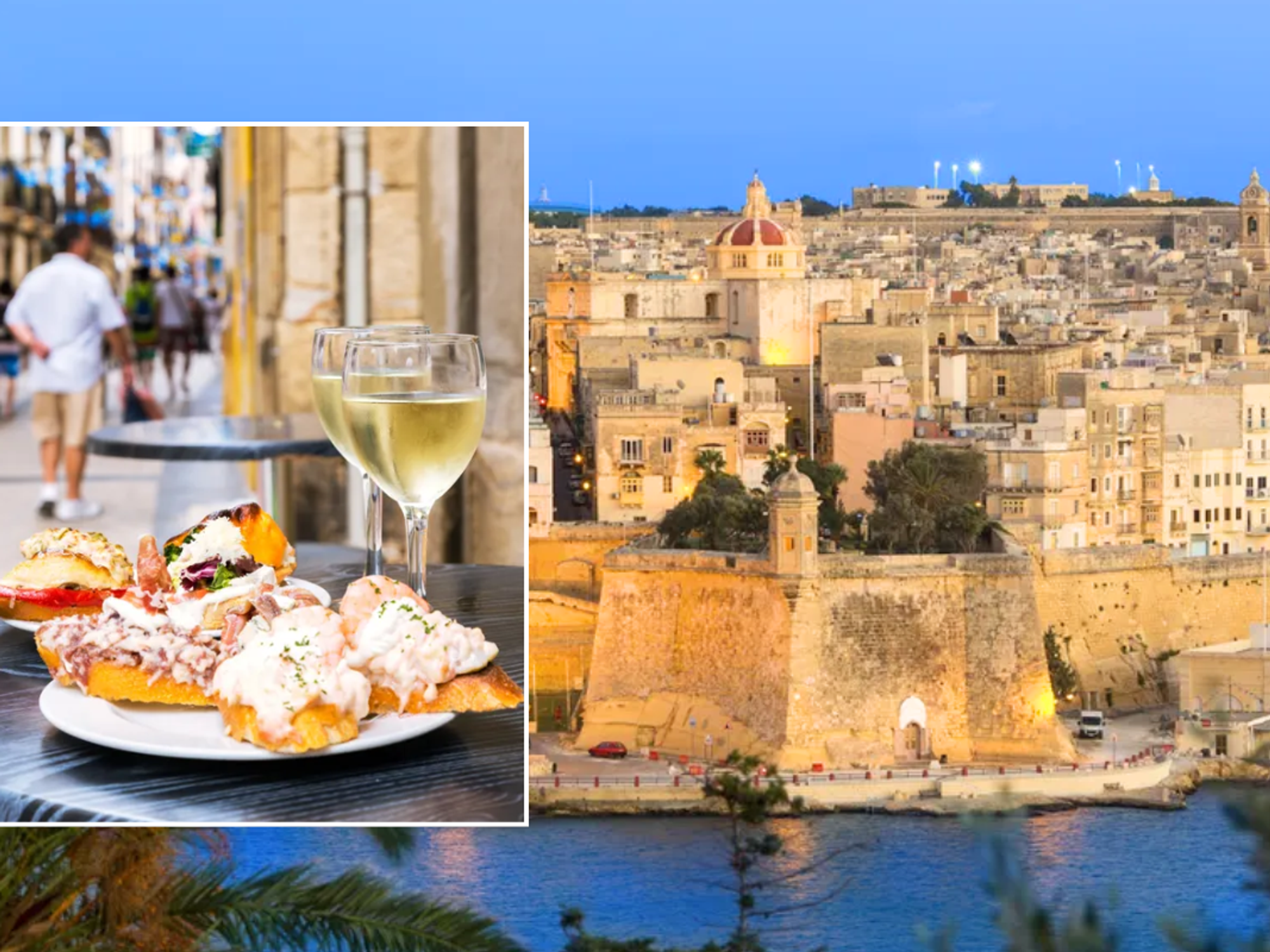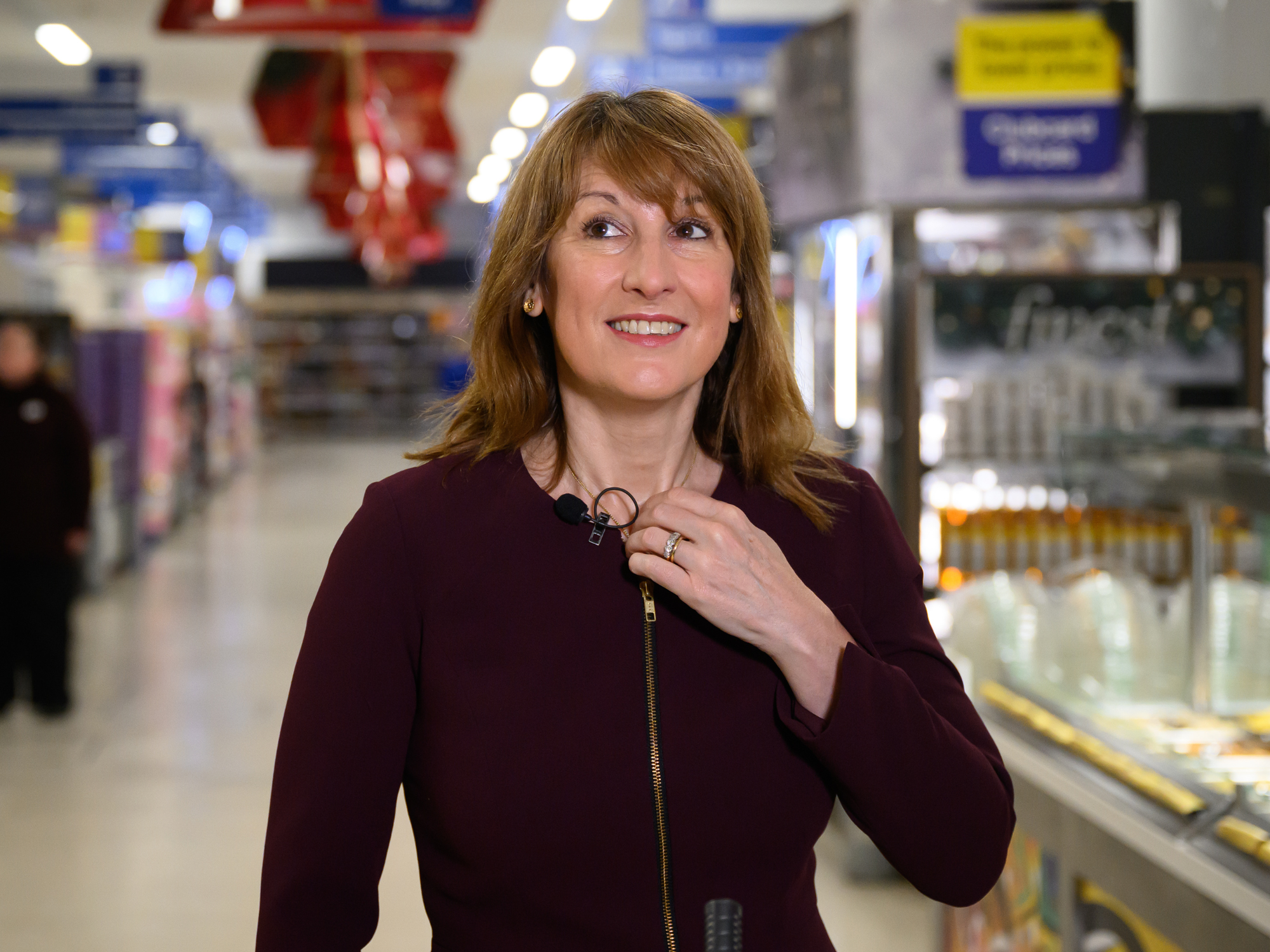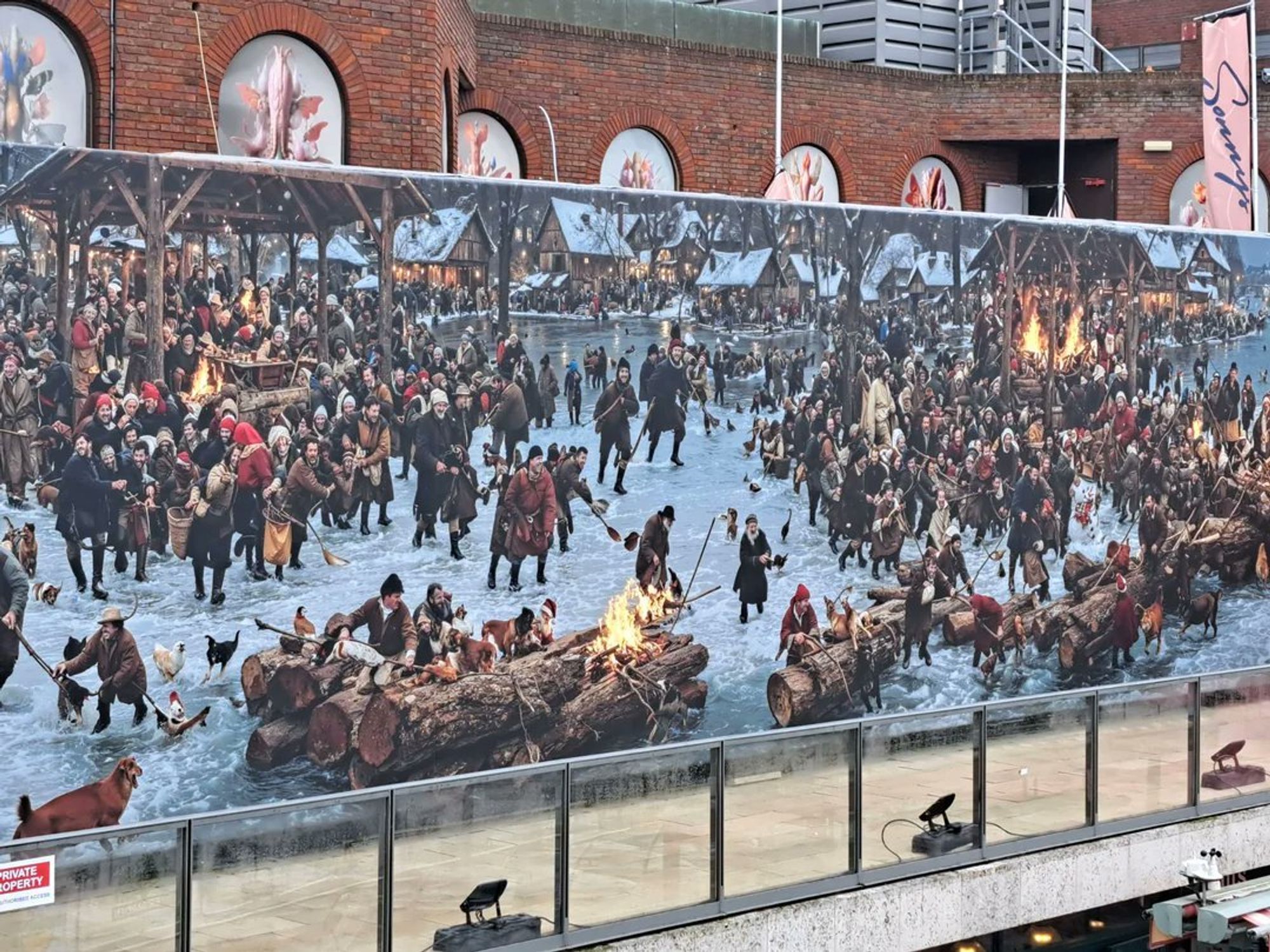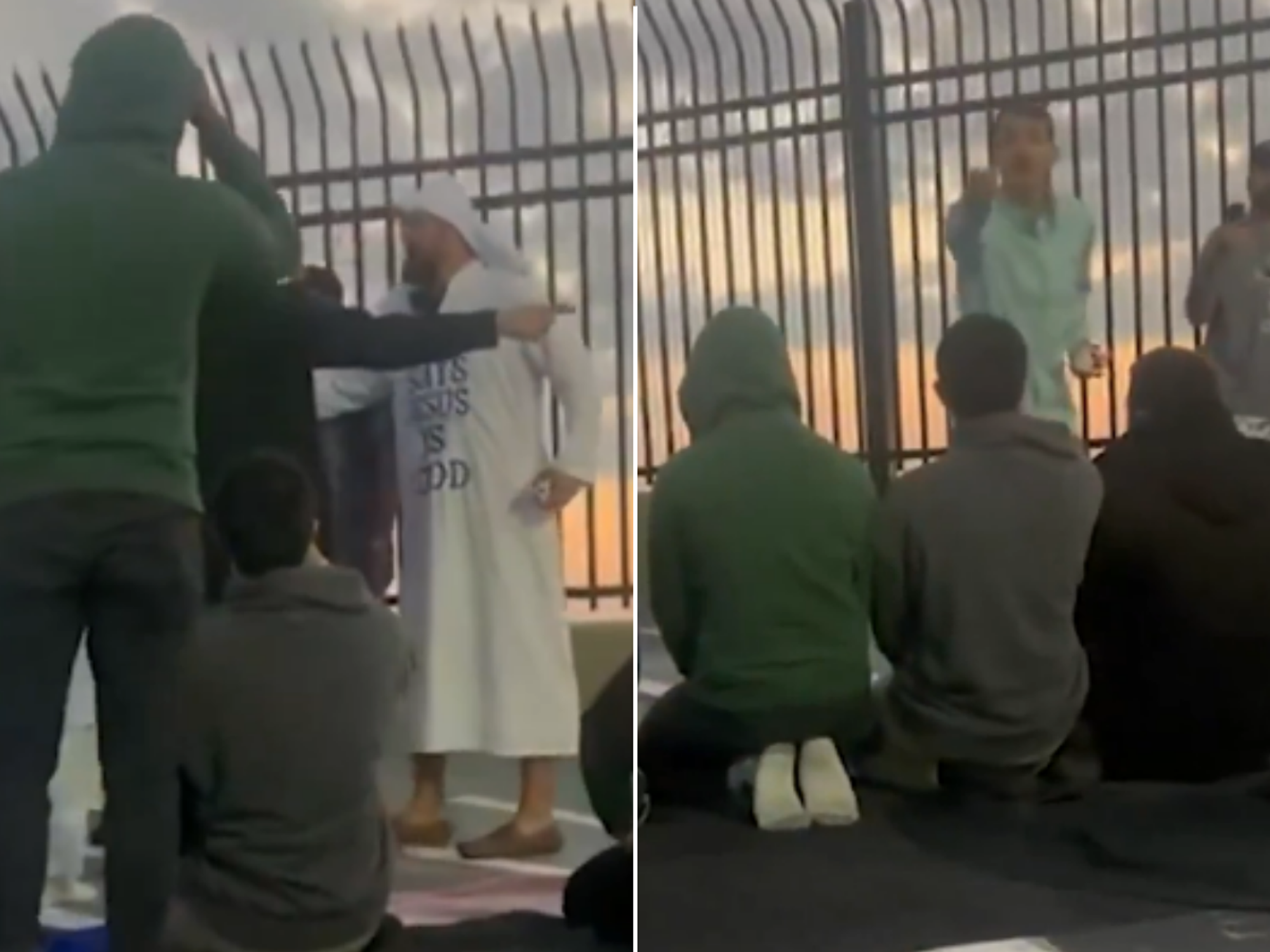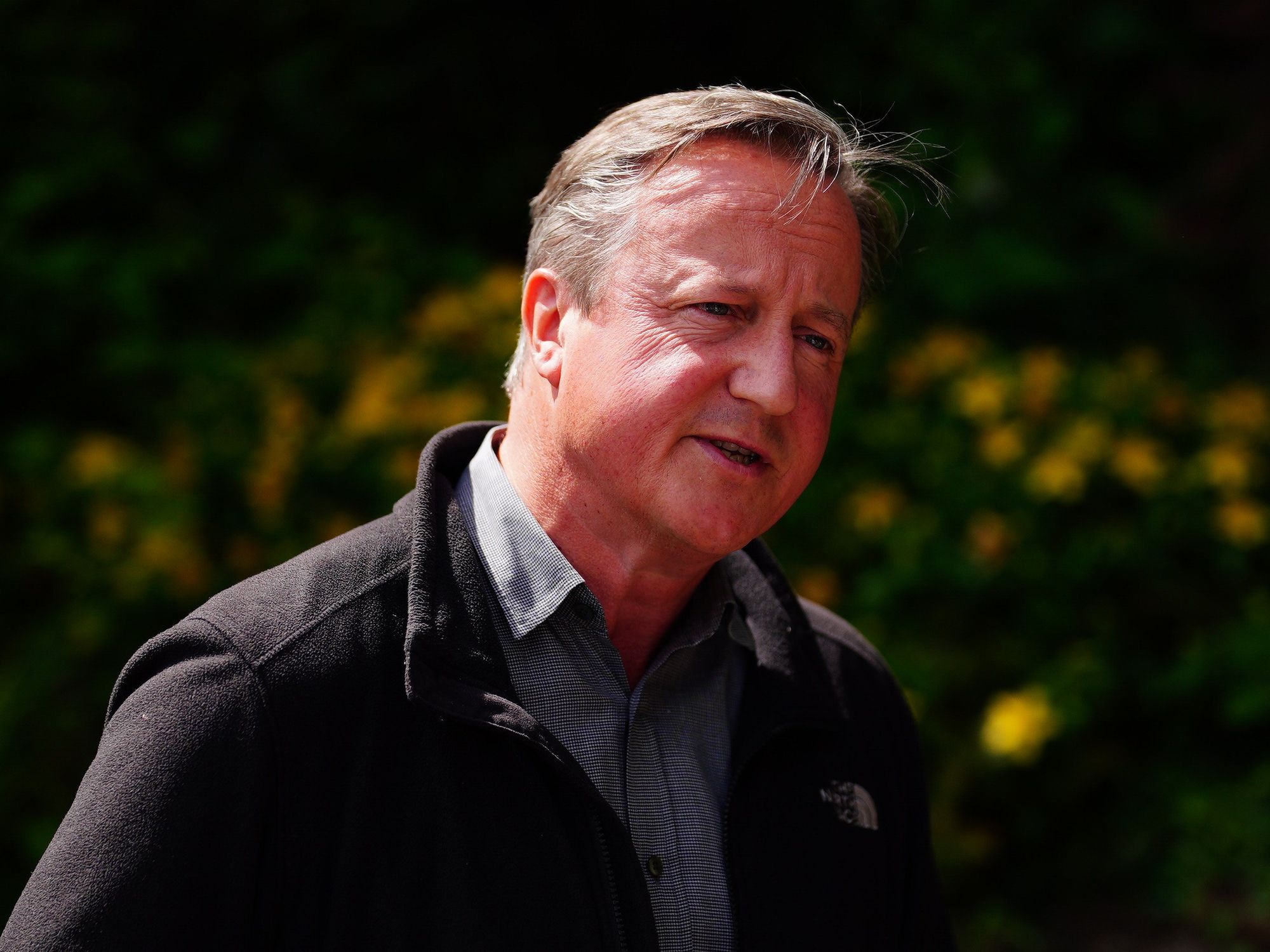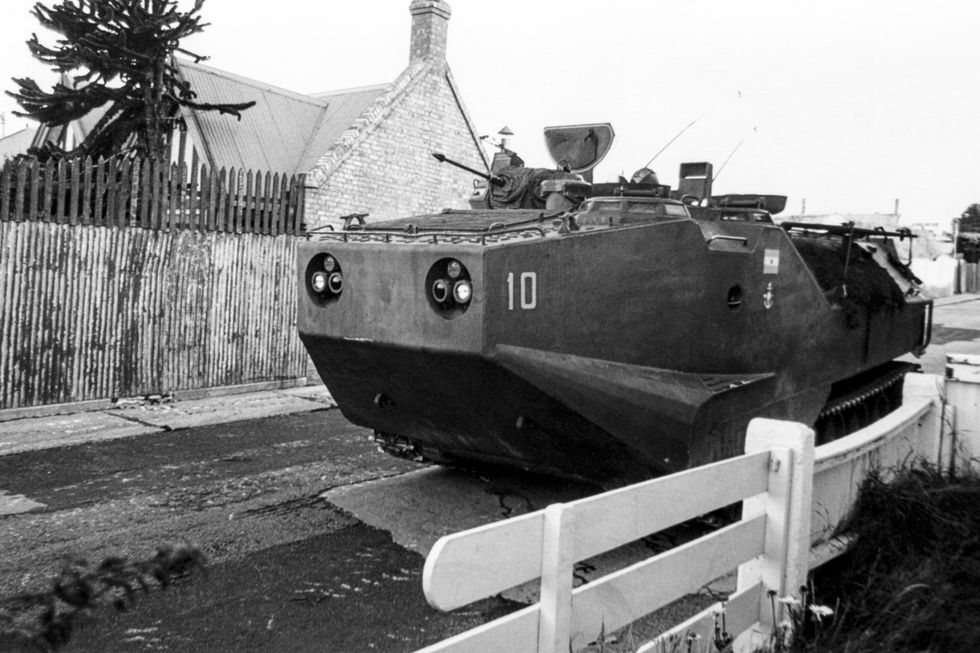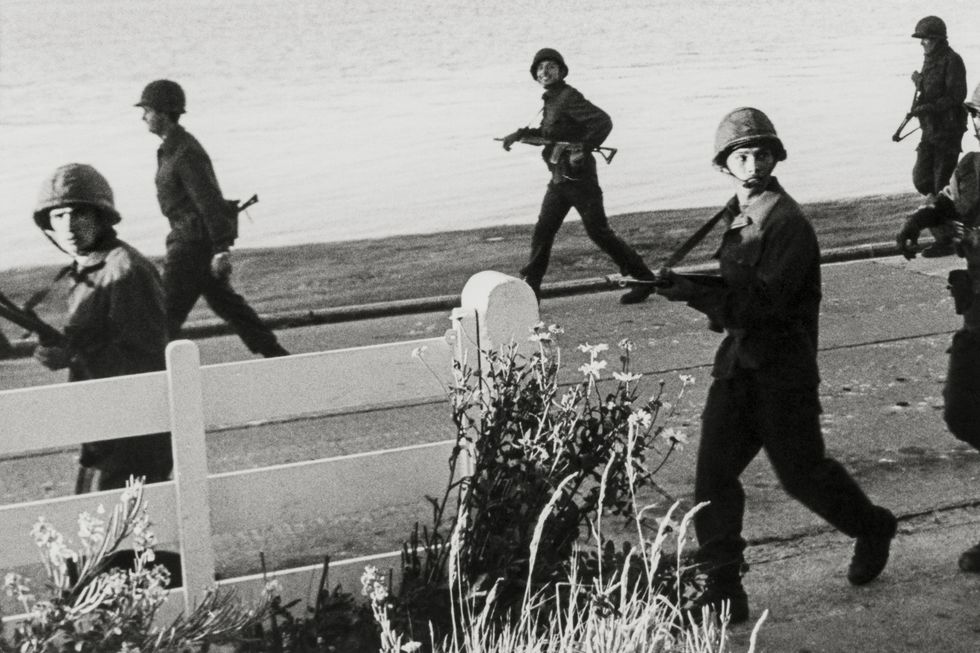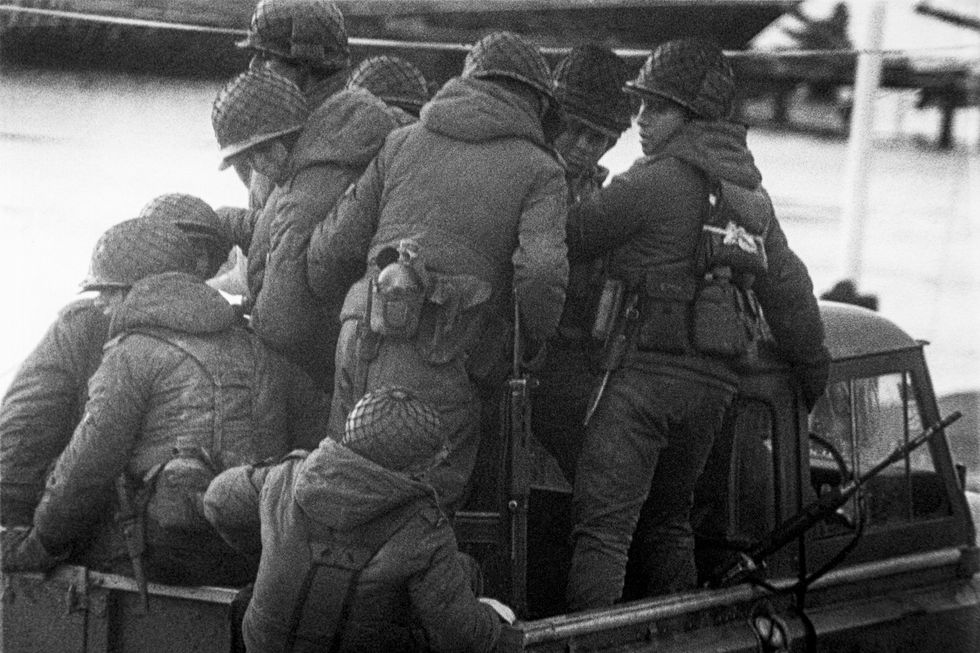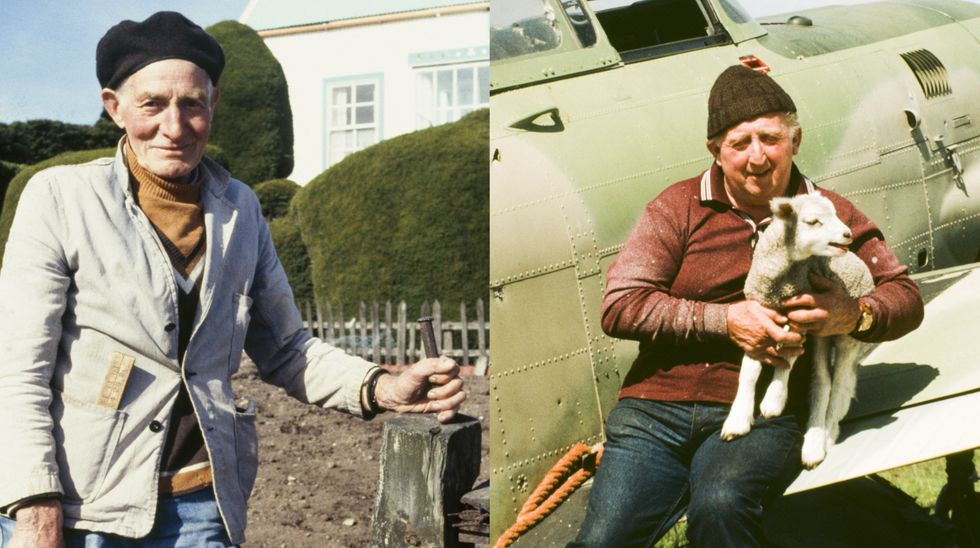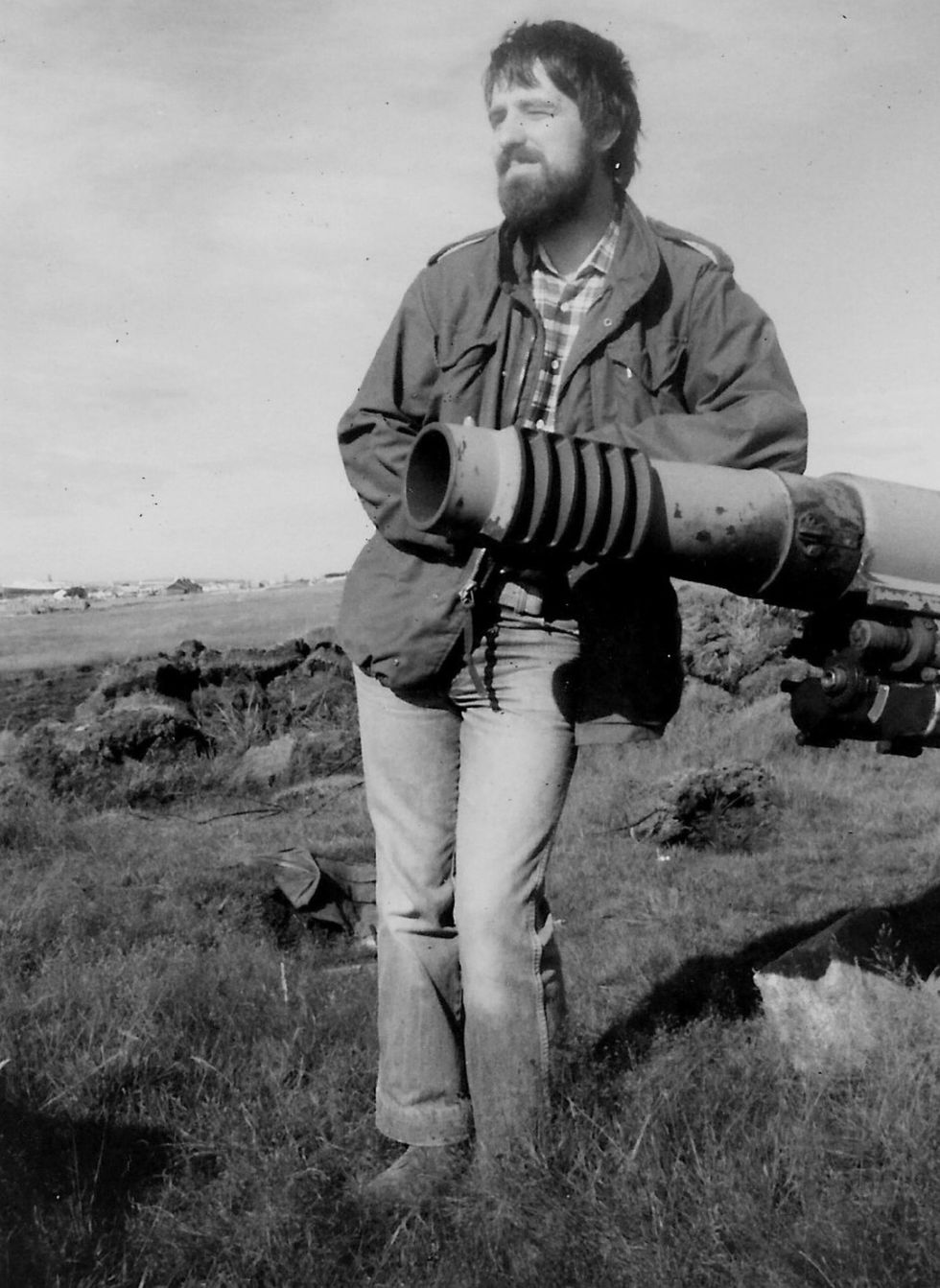Falkland Islands photographer tells GB News of 'unrelenting fear and trauma' of invasion

Graham Bound told GB News of the story of the invasion of the Falkland Islands from the perspective of a local
Don't Miss
Most Read
Latest
As the nation pauses to remember the 40th anniversary of the liberation of the Falklands, the public are also being urged to spare a thought for the sacrifice and the suffering endured by islanders.
Graham Bound, who was a young photojournalist in Port Stanley when the Argentinians invaded on 2 April 1982, documented the 74 days of occupation with his stills camera.
He told GB News that, perfectly understandably, the story of the war had been consumed by the wider narrative of a remarkable military endeavour thousands of miles from home and a huge political gamble by the Thatcher government.
But Mr Bound said that for almost 2000 islanders, it was 74 days of unrelenting fear and trauma under Argentinian rule and that four decades on, some locals were still dealing with that trauma.
A tank on the Falkland Islands
Graham Bound
From the moment the first of the invading troops marched into Port Stanley, the 24 year old, who ran the local newspaper, the Penguin News, started taking photographs.
He said he was more than aware of the dangers involved in photographing an invading force, but felt a higher obligation to capture the unfolding events.
As a group of heavily armed soldiers passed the local hotel in Port Stanley where Graham was, he stepped outside the front door and began taking pictures.
"It was a wide angle lens as well, so it's actually very close." He said.
"You know, some of the troops were suspicious and some of them were reasonably optimistic and gung ho, so I wasn't quite sure what to make of it, but I thought it was worth it.
Troops invading the Islands
Graham Bound
"I had a very strong sense that we were seeing history unfold and it's not very often that you get a chance to do anything to record that.
"I was very young. I was only 24 and I just saw it as an opportunity, so I really wanted to go for it.
"And you know, that was the beginning of recording something that went on for 10 weeks or so."
Many of Graham's pictures are being seen for the first time at a special Falklands war exhibition at the Historic Dockyard in Chatham, Kent.
In Port Stanley on Tuesday, at the National Memorial Arboretum in Staffordshire and at other locations, special ceremonies of commemoration will be held to remember those who paid the ultimate sacrifice 40 years ago.
255 British servicemen lost their lives in the conflict. Almost 800 were injured.
649 Argentinian troops were also killed, before the British brought about their surrender and regained control of the islands on 14 June 1982.
The campaign to recapture the islands was a political and moral imperative for then Prime Minister Margaret Thatcher.
Troops invading the Islands
Graham Bound
It was an enormously risky endevour, sending a naval taskforce of more than a hundred vessels 8000 miles south into the South Atlantic winter.
Graham Bound said he and fellow islanders would be forever grateful to those who took part in the most incredible military campaign.
But alongside the commemorations for those sacrifices, he appealed to people not to forget the islanders at the heart of the story.
He said he hoped his exhibition would help document the toll the war and brief occupation had taken on island life.
As well pictures of destroyed buildings and crippled military hardware, of coffins and of liberation, there are also pictures of some of the faces of islanders, long since dead.
He stood next to photographs of two islanders named Joe and Griff, as he explained there were no after-care services like counselling on offer for locals.
“It’s a thing quite dear to my heart because I actually think that everybody just had to pick themselves up and carry on.”
He said: “I don't remember anybody really saying. And how are you?
Graham Bound
Graham Bound
“I'm not complaining about it, but I just think that a lot of people had a tough time and only had their own resources to lean on.
"The population of Stanley went from about 1400 people down to 500 people as many of them thought they would be safer out on the farms and many of them went to Goose Green, or Pebble Island for example.
"But the words frying pan and fire come to mind."
Pointing to the photograph of an elderly farmer sitting on the wreckage of an Argentinian aircraft and holding a lamb, he said: "This gentleman, Griff, was a shepherd.
"He was actually the farm manager on Pebble Island and had been locked up with all the other people on the farm in one house for a period of about a month, having a pretty tough time.
"You can see here, he's now very definitely happy to be out with his sheep again."
Looking at another photograph of a farmer called Joe, Graham said:
“Here he's repairing his fence, which had just been run down by a military truck.
"And I kind of feel that the whole Falklands War. Yes, it was about the Falkland Islanders, but it became far bigger than them and it's remained that way to a great extent, and everybody at the end of it just had to pick themselves up and get on with their lives.
Graham Bound during the invasion
Graham Bound
“And I look at these guys, both of whom are now gone. And I'm quite proud of them and I think they did a really good job.
“And I wish they weren't perhaps a little bit forgotten."
Graham said there was an understandable desperation to get everything back to normal, but he said the suffering was real. The suffering of people like his own father.
"He was depressed. He was angry. I couldn't really work out what was wrong, and I now realise what was wrong.
"I was so young and so gung ho, that I just saw it all as a challenge and fairly exciting. I just got on with it.
"My father didn't cope with it all, and within two years he passed away."
Graham Bound said that in the aftermath of the Falklands war, the stories of individual islanders did not get explored or told.
He said he hoped the exhibition of the images he captured during the Argentinian occupation would give some much needed focus on ordinary islanders.
"When I was presenting these photographs in the Falklands, I said to the people there, after 40 years it was about time we gave ourselves a bit of a hug and said yeah, we did have a tough time, didn't we?"







